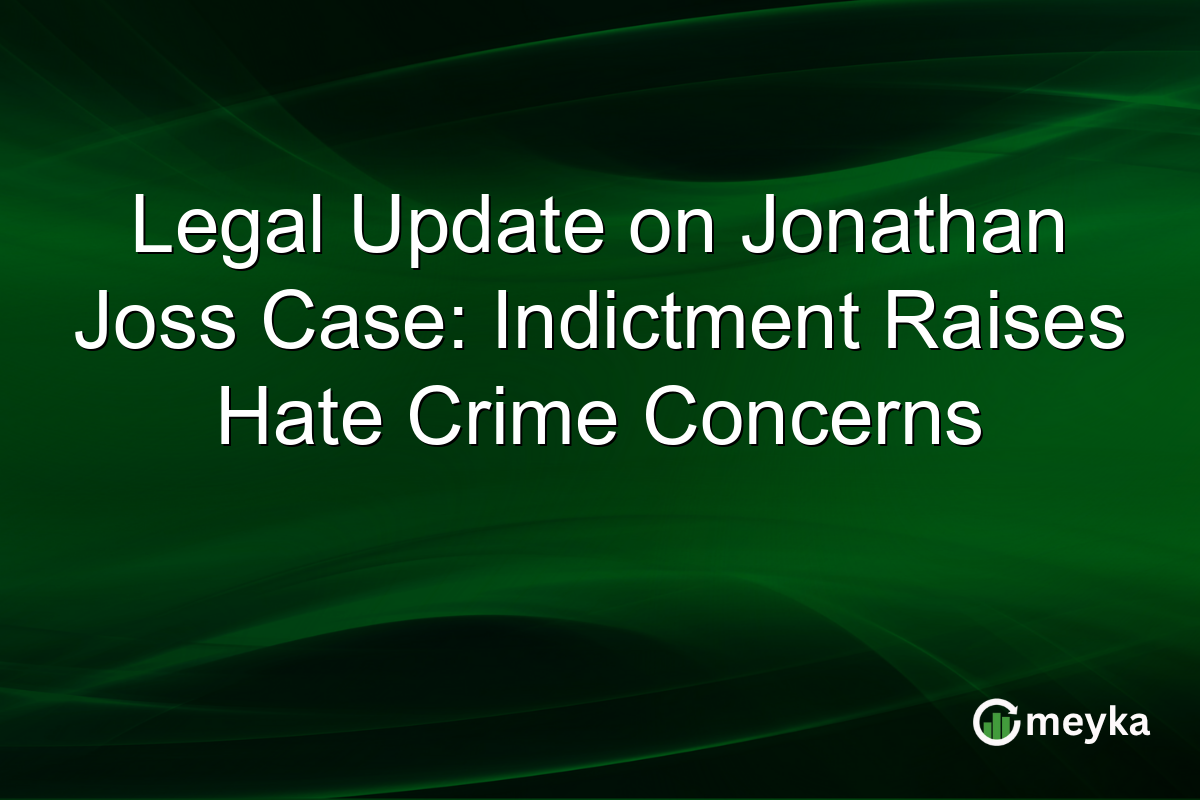Legal Update on Jonathan Joss Case: Indictment Raises Hate Crime Concerns
The recent indictment in the Jonathan Joss case has captured widespread attention, focusing on potential hate crime implications. Jonathan Joss, known for his role in ‘King of the Hill,’ was tragically murdered, bringing intense scrutiny to the motives behind his death. The indictment of Sigfredo Ceja Alvarez has raised questions about whether homophobic motives were involved, shining a light on the complexity of proving hate crimes in the U.S. legal system.
Continue Reading on Meyka
This article is available in full on our main platform. Get access to complete analysis, stock insights, and more.
Read Full Article →





